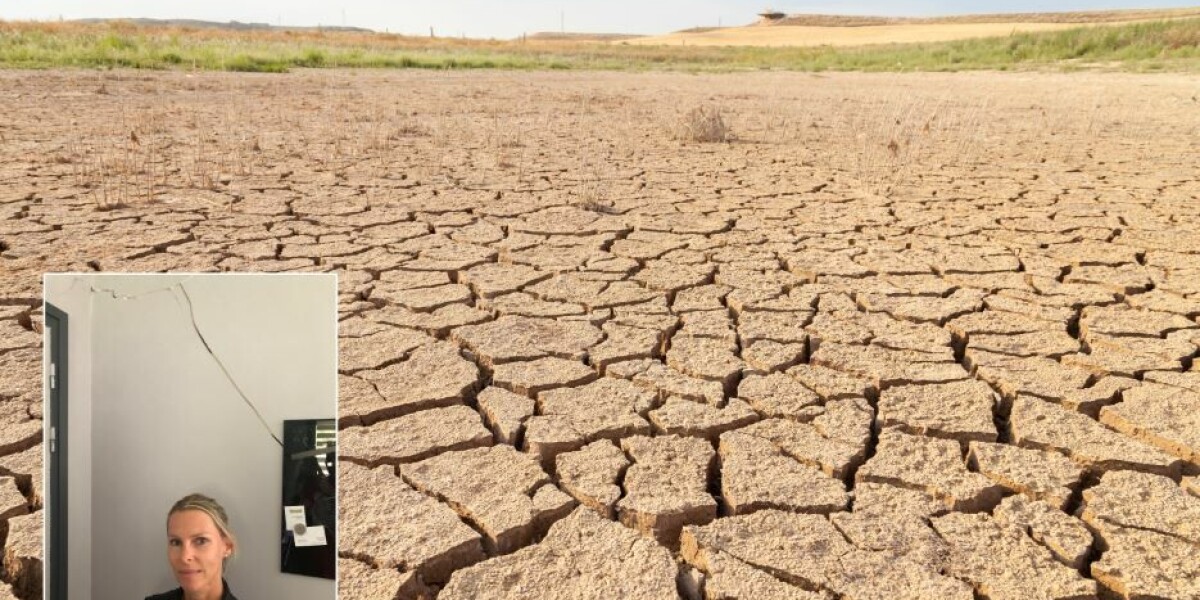
Support for french drought damage bill ‘a good start’
- Select a language for the TTS:
- UK English Female
- UK English Male
- US English Female
- US English Male
- Australian Female
- Australian Male
- Language selected: (auto detect) - EN
Play all audios:

AN ASSOCIATION REPRESENTING HOMEOWNERS WHOSE PROPERTIES WERE DAMAGED BY DROUGHT HAS WELCOMED A BILL WHICH WOULD REFORM THE INSURANCE SYSTEM A bill that would make it easier for homeowners to
be compensated for damage due to drought is “a good start but does not go far enough,” an association of insurance claimants has said. More than 10 million homes are considered at risk of
cracks due to the way clay soil contracts during droughts. Homeowners can only make insurance claims once a decree declaring a _catastrophe naturelle_ (natural disaster) in their area has
been issued. The bill, put forward by Green MP Sandrine Rousseau and passed by MPs, would change the criteria for a natural disaster. READ MORE: FRANCE’S _‘CATASTROPHE NATURELLE’_ INSURANCE
SYSTEM: HOW TO CLAIM The drought would have to be considered one of the five worst in the last 50 years. It must currently be among the two worst droughts. Cracks that get worse would also
be considered a ‘new event’, allowing homeowners to claim for repairs. Hélène Niktas, of the association Les Oubliés De La Canicule, which guides victims through drought insurance claims,
said: “We are satisfied, particularly with the possible evolution of the time periods.” COVER A PERIOD OF 12 MONTHS She was referring to the fact that natural disaster decrees would cover a
period of 12 months from the event. “When there is a flood, it happens at a specific moment, but with a drought, the house will not crack on a precise date.” The bill would also introduce a
presumption that the drought is the main cause of the damage, and place the burden on the insurer to prove otherwise, a move welcomed by Ms Niktas. “Currently, they find all sorts of reasons
to say the drought is not to blame. Then it is up to people to pay for very expensive tests to defend themselves.” Another change would allow claimants to use the insurance money to buy or
build a new house, if their current home is rendered uninhabitable. Ms Niktas believes the bill could have gone even further, were it not for party political rivalries. She expressed regret
that an amendment put forward by the Rassemblement National was not retained. It would have reduced the excess owed by claimants for drought damage – currently €1,520, compared to €380 for
other natural disasters. The bill will now go to the senate. Ms Niktas says she is “sceptical” it will be adopted in its current form. “I think insurance companies will exert pressure
between now and then.” ‘ONLY HOPE’ OF PAYING FOR REPAIRS Sandra Arfa, the association’s point of contact in Loiret, will be closely following the outcome of the bill, which she says is her
“only hope” of paying for repairs. Ms Arfa first noticed cracks following the 2003 heatwave, but her commune was not covered by a natural disaster decree. “Over the years, whenever there was
a drought, the damage would worsen, until we had to do something as the house was literally collapsing,” she said. She paid €60,000 out of her own pocket for resin injections, which held
until new cracks appeared in 2018, and some windows and doors were stuck. This time, there was a decree, but her insurer refused to pay out, saying the original damage had not been properly
repaired. The necessary work is estimated at €300,000, more than the house is worth. She is now waiting to see whether the reform goes through. “It would mean if there is another decree in
the future, the worsening could be taken into account, and the insurance will not be able to use the same argument,” she said. RELATED ARTICLES DROUGHT-HIT FRENCH DEPARTMENT IN PLEA TO
PREVENT ‘HUMAN CATASTROPHE’ MPS BACK COMPENSATING HOMEOWNERS IN FRANCE FOR DROUGHT DAMAGE MOVES TO IMPROVE COMPENSATION FOR DROUGHT DAMAGE IN HOMES IN FRANCE
